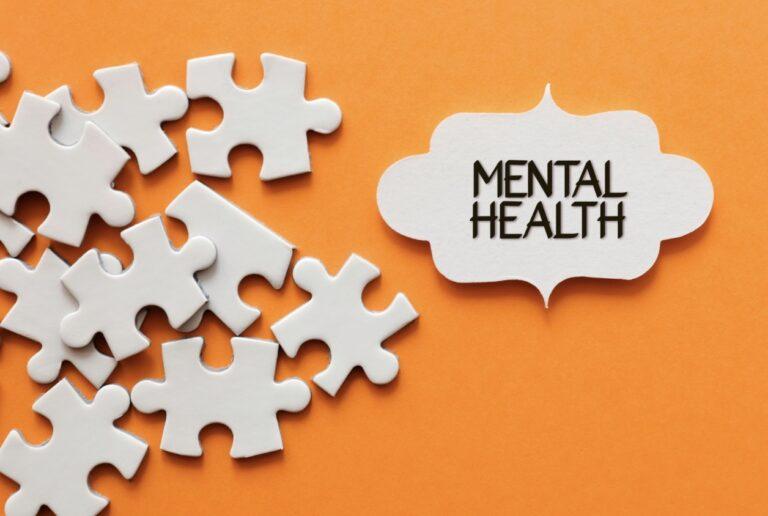Have you ever had a traumatic experience that felt like it wouldn’t leave you alone? Maybe it’s an event during childhood or something more recent. Trauma can have long-lasting effects even after the incident for some people and their loved ones. Post-traumatic stress disorder (PTSD) is a mental health condition that occurs in response to intense experiences. It can be difficult to manage, but there are ways of coping with its symptoms, as well as getting help from professionals. Read on to learn what PTSD is and why it happens, so you can better understand yourself or someone close to you who has been affected by this condition.
What is Post Traumatic Stress Disorder?
Post-Traumatic Stress Disorder (PTSD) is a mental health disorder that arises when someone is exposed to a traumatic event such as experiencing or witnessing an extreme injury, the sudden death of a loved one, war, terrorist attack, natural disaster or any other traumatic or life-threatening incident. People with PTSD often experience flashbacks and nightmares related to the event, feelings of distress, fear and guilt. The emotional pain can be so intense that it disrupts day-to-day activities. It can affect people of all ages, from children to adults.
What is a PTSD flashback?
Post Traumatic Stress Disorder flashbacks are experienced and characterised by intrusive memories of past traumatic events. A flashback is a sudden, involuntary recollection of the past event, usually in the form of vivid images and thoughts as if they were happening in the present moment. These memories can be emotionally distressing and can cause physical responses such as feeling very scared and overwhelmed.
Flashbacks are often unpredictable and can last from a few seconds to several hours or days. It is important to know that flashbacks are not uncommon following a traumatic experience. They are part of the body’s natural way to help process the trauma. However, if they cause significant distress or impede day-to-day functioning, it becomes important to seek help from a professional therapist or support group.
What is the difference between a flashback and a memory?
Many often find themselves confused between the terms “flashback” and “memory”. While memories are recollections of past experiences, flashbacks re-experience those moments in vivid detail. Memories come to us slowly and often less dramatically than flashbacks. Flashbacks are emotionally intense, rapid re-experiences of a traumatic moment or a vividly remembered scene. In many cases, the person reliving the flashback may feel like they are reliving the actual experience from long ago rather than simply remembering it. Flashbacks provide an emotional component to a memory that allows for more powerful re-experiences.
Symptoms of post-traumatic stress disorder
Post-traumatic stress disorder can manifest in a variety of ways. Trauma can be a very heavy burden to carry. It is important to understand the most common symptoms to help those affected recognise the signs of post-traumatic stress disorder. People suffering from PTSD may experience the following:
- Difficulty sleeping
- Flashbacks
- Nightmares
- Panic attacks, hyperarousal (feeling on edge)
- Intrusive thoughts or memories
- Negative changes in mood and behaviour
- Difficulty concentrating
- Being easily startled
- Irritability or outbursts of anger
- Survivor guilt and feeling detached
- Estranged from friends or family
- Avoiding situations that remind them of the trauma
- Physical sensations such as sweating or nausea when reminded of the trauma
If you experience any of these symptoms for a prolonged period of time, we recommend seeking professional help from experienced doctors.
What is complex PTSD?
Complex PTSD, also known as C-PTSD, is a disorder caused by significant trauma that occurs over an extended period of time. It can follow a traumatic event such as a natural disaster, war, sexual assault or abuse and is characterised by depression, social withdrawal, flashbacks, physical symptoms like tension headaches, feelings of guilt and shame and difficulty controlling emotions. As the name indicates, this form of PTSD is very complex and is often more challenging to treat than simple PTSD. It is important to seek help and support if you believe you or someone you care about may be experiencing Complex PTSD, so that healing can begin soon and progress into a full recovery.
Identify your triggers
Learning to understand your triggers of post-traumatic stress disorder can be a difficult task. These triggers can be anything related to the traumatic event that has caused symptoms of PTSD, such as certain sights, smells, sounds or simply entering an unfamiliar place. It is important to take time to recognise the different factors or stimuli that might bring on uncomfortable feelings or physical reactions so you can begin to learn healthy coping mechanisms and grounding techniques.
By creating meaningful connections between yourself and traumatic events in your life, you increase the chances of feeling empowered while managing challenging thoughts and emotions that may come up when faced with an identified trigger. Discovering your triggers is essential to finding ways to manage them and build resilience for future stressors.
Treating PTSD
Post-traumatic stress disorder (PTSD) can be difficult to live with, but some approaches and treatments may help you cope. While not every method may work for everyone, a few treatments have proven successful.
Eye movement desensitisation and reprocessing (EMDR)
Eye movement desensitisation and reprocessing (EMDR) is used to help people heal from past trauma or anxiety. This approach tries to treat traumatic memories’ impact on an individual so they can move forward with their life. Clients are asked to talk about a traumatic experience while their therapist guides them through bilateral stimulation of the brain. This may include eye movements, such as following a therapist’s finger, as well as other body movements, like tapping or listening to tones in each earbud. EMDR is designed to help disrupt the old thought patterns connected with traumatic memories and replace them with healthier ones, ultimately allowing the client to feel safe again.
Trauma-focused cognitive-behavioural therapy (TF-CBT)
Trauma-focused cognitive behavioural therapy (TF-CBT) is an evidence-based form of psychotherapy that is designed to help individuals who have experienced trauma focus on coping strategies. The approach focuses on developing and strengthening the person’s capacity to regulate emotions, develop a sense of hope and gain skills to cope better with difficult memories and other challenging situations. TF-CBT helps people become more aware of their thoughts and feelings about the traumatic event in order to process it more effectively. During TF-CBT sessions, individuals work with a therapist to practice specific techniques such as identifying and expressing feelings, problem-solving, relaxation techniques and improving communication skills. This approach has helped many people move through trauma in healthy ways so they can continue living meaningful lives.
Medication
Medications may be prescribed as part of a treatment plan developed by a professional mental health provider, such as antidepressants, antianxiety medications and sometimes antipsychotics. These drugs can help people feel better by improving their ability to cope with the negative thoughts associated with PTSD, decreasing intrusive thoughts and helping control their recurring memories of the event.
Studies have indicated that antidepressants may be less effective without psychotherapy or other psychological interventions. It’s especially important for individuals experiencing suicidal ideation or self-harm to seek guidance from a mental healthcare provider when taking antidepressants for PTSD treatment.
If you are experiencing symptoms of PTSD, it’s important to get professional help from a qualified doctor or mental health professional who can create a personalised treatment plan that works best for you.
Living with PTSD
Living with PTSD can be difficult at times, but there are ways to cope effectively. It’s important to reach out for help when needed and build a support system of family members, friends, healthcare providers, therapists – anyone you trust to provide emotional support during difficult times. It’s also important to develop a self-care plan through healthy eating habits, exercise, getting enough sleep each night (aim for 7-9 hours) and limiting alcohol consumption and drug use if applicable. This will help reduce symptoms significantly over time. Additionally, it’s helpful to practice self-compassion – being kind to yourself – whenever possible!
In summary, PTSD is a mental health condition that occurs after experiencing or witnessing a traumatic event. Treatment plans vary depending on an individual’s specific needs, but typically involve talk therapy with a therapist or psychologist and lifestyle changes that can help reduce symptoms over time. If you think you may have PTSD, it’s important to reach out for help from supportive family members, friends and healthcare providers so that you don’t have to struggle alone. With proper treatment, managing the effects of PTSD is possible.
Sources
Medical Disclaimer
NowPatient has taken all reasonable steps to ensure that all material is factually accurate, complete, and current. However, the knowledge and experience of a qualified healthcare professional should always be sought after instead of using the information on this page. Before taking any drug, you should always speak to your doctor or another qualified healthcare provider.
The information provided here about medications is subject to change and is not meant to include all uses, precautions, warnings, directions, drug interactions, allergic reactions, or negative effects. The absence of warnings or other information for a particular medication does not imply that the medication or medication combination is appropriate for all patients or for all possible purposes.






